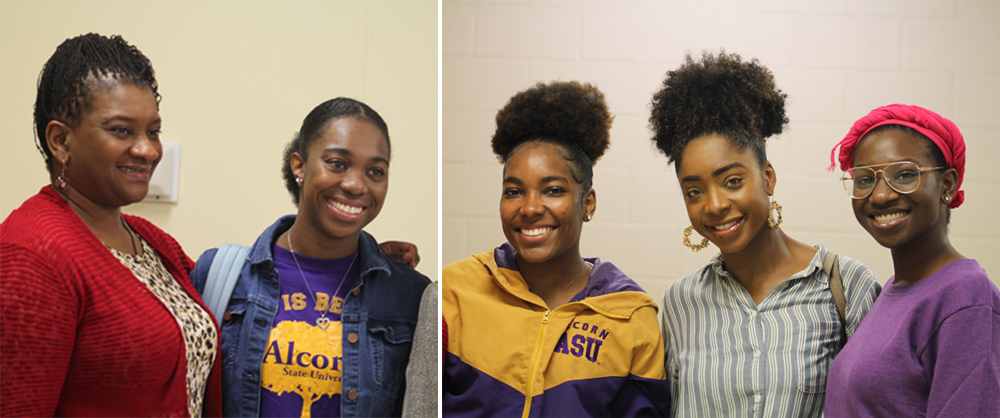
By Dr. Jerry Komia Domatob,
Contributing Writer,

This is a vital and prototypical epoch in human history, when ardent cynics and pessimists disparage the black press. This negative attitude is evidently akin to the gleeful prediction of its inevitable demise. To these adamant naysayers, especially during an era when the mainstream print media arguably reckons with its requiem, the status of the black press raises controversy. “It’s useless and irrelevant,” some arch opponents assert without guts or gumption.
Foremost champions: Hampton and Cain
However, two seasoned and distinguished Mississippi media giants, Mississippi Link publisher Jackie Hampton and editor Othor Cain, credibly argue that the black press is alive and well.
Speaking to Alcorn Mass Communication students in early November 2019, they submitted that despite daunting financial, social, cultural and technological hurdles, the Black Press battles along.
These media leaders convincingly contend that the Black Press’ role is as pertinent today as at its genesis in the 18th century. They assert that as in other historical eras, such as the Civil Rights movement, Reconstruction and slavery, the Black Press still performs a major role.
In championing the cause of the Black Press, speakers Cain and Hampton, urged staff and students who invited them, to build on the solid foundation of Black Press pioneers.
During their presentation Hampton and Cain exhorted the importance of promoting the legacy of African-American media pioneers. And reminded them that even with challenges the Black Press grapples with, they are alive and progressing.
Bottom Line Profitability
Though the Black Press has a civil rights’ mission, the speakers noted that they must still practice the craft of journalism which is based on facts and not fiction; truth not lies and reality not myth. Black Press members must also survive and reckon with the quest for profitability and professionalism as imperatives for media owners and practitioners.
Hampton emphasized the importance of sales, noting that it is the life-line of most newspapers and other media outlets. She stressed that with the advent of social media, print sales and advertising have witnessed phenomenal changes.
Citing online transactions as the standard modus operandi today, Hampton added that media students must adapt to the new era and ways of conducting business.
Credible Stories
These speakers further updated students on media challenges, internships, job opportunities, trends and strategies. They said media practitioners, of any race or background, must tell stories people can consume. Second, the Black Press operates from an alternative perspective, which is relevant and pertinent. Third, it is incumbent on HBCUs to train and equip students to tell alternative stories to mainstream reporting, especially as it pertains to the plight of African Americans.
“We provide a voice for the voiceless. We tell stories from different angles. We are black journalists, but we must tell the truth. No matter what path you follow, the most important thing is writing. Writing is life. In the multi-media age, you do everything. You write, you shoot and edit,” Cain said.
NABJ
Alcorn’s Branch of the National Association of Black Journalists (NABJ) capitalized on the occasion to present their new executives: president Aerial Robinson; vice president Jazmin Green and secretary Gabrielle Terreet. Terreet, who serves as the adviser of Alcorn’s student’s branch, also helped in organizing the event.
The meeting, which ended with photographs and networking, enlightened attendees on the Black Press. Students posed insightful questions, which the two professionals tackled with excellence.
Dr. Jerry Komia Domatob is a mass communication professor at Alcorn State University, Lorman-Mississippi. A poet, author and journalist, Domatob taught at the University of Northern Iowa, Long Island University, Southampton-New York, where he was the director/coordinator for communications. He also served as a professor at Rutgers University, New Brunswick; Fordham University, New York City and The College of New Rochelle, New York, as communications sequence director. He has published over five books and the latest ones are: Communication, Culture and Human Rights and Positive Vibration. He has published several newspaper features in Nigerian and American newspapers notably in the Jackson Advocate, The Mississippi Link, Harlem Times, Glory Journal and the Port Gibson Reveille. Contact him at domatobj@gmail.com.
See photos page 19.

Be the first to comment